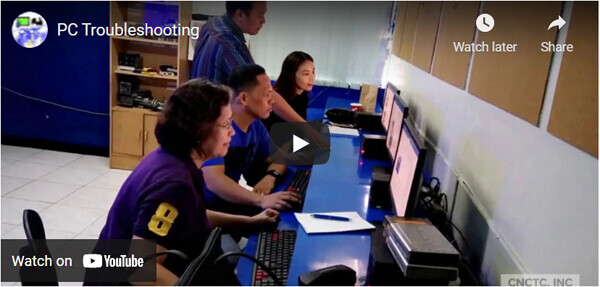
- 4 days Instructor-Led Face to Face Classroom training
- We are a TESDA Registered Training Center
- Offering Flexible Schedules – Both Weekdays and Weekends Classes
- Get Trained by a TESDA CSS NCII Trainer. Expert Instructor with Over 15 Years of Industry Experience
- No. 1 Training Center for TESDA CSS NCII Courses
- We Include the Exam for TESDA CSS NCII in the Course Fee.
- We Guarantee the Best Price for TESDA CSS NCII Courses i
- 4 days Instructor-Led Live Online Classroom
- Webex Virtual Class for interactive near-classroom experience
- Access to Remote Lab PC for Hands-On activities
- Unlimited Practice exams
- Integrated Courseware in the Learning Management System
- Step by Step guide for challenging hands-on lab activities
- Flexible Schedules – Both Weekdays and Weekends Classes
- Get Trained by a TESDA CSS Certified Expert Trainer with Over 15 Years of Industry Experience
- No. 1 Training Center for TESDA CSS NCII Courses
- E-learning Access for Pre-course and Post-Training Support
- Best Price Guaranteed for TESDA CSS NCII Courses
- Gain the technical skills needed in the workplace. 1 on 1 training is the best way to learn
- The quickest way to master any of our course offerings.
- Experience superb hands-on laboratory activities and unobstructed attention from your trainer.
- Guaranteed to start the Training.
TRAINEE FEEDBACKS
About the Course
This hands-on training teaches you everything you need to know to become an expert technical support staff member. It covers Basic to Advanced troubleshooting and servicing strategies. You need no further PC Repair training after completing this course. This course is an unselfish technology transfer from CNCTC Inc through its experienced IT Trainers at a reasonable price. It is a two-course training merged into one training.
Become an expert Computer Technician. Learn Basic to Advanced troubleshooting and servicing strategies. Hands-on PC Repair training course.
WHAT YOU’LL LEARN
- Identify computer hardware and software
- Configure Hardware settings
- Recognize computer hardware compatibility
- Assemble and Disassemble a computer
- Identify the source of computer problems and repair it on the spot
- Installing and upgrading Windows OS, motherboard device drivers, and other components and peripherals
- Detecting, preventing, and removing a computer virus
- Disk formatting and partitioning
- Implement data backups and Data recovery
- Troubleshoot common Hardware and Software problems
WHO SHOULD ATTEND
Individuals seeking to become Technical Support Staff and looking to pass the TESDA CSS NCII Exam.
CERTIFICATION EXAM
TESDA CSS NCII Exam Fee: Php2000
PREREQUISITE:
Basic knowledge of computers and Windows. Familiarity with using a mouse and keyboard
EMPLOYMENT OBJECTIVES
Upon completion of the course, students will be qualified to be Junior Technical Support Staff, Technical Support Staff, Senior Support Technical Staff
COURSE CURRICULUM
PC TROUBLESHOOTING SYLLABUS
Module 1 - Advanced PC Assembly, Hardware Configuration & Servicing
- Common PC errors you encountered while using a Computer. (Interactive discussion)
- Types of Personal computers
- Identifying key parts of a Personal Computer
- Basic Software components
- Overview of PC Operation
- Types of PC case
- Functions of a CPU Case
- Front Panel connectors
- Removing CPU Case
- Cleaning the PC case
- PC Cooling System
- PC Cooling system maintenance
- Power Supply, Common Power Supply problem
- Types of CPU: dual core, core 2 duo, quad core, i3, i5, I,7 etc
- CPU socket/slot types
- Comparing different types of CPU (AMD / INTEL)
- How to identify CPUs physically
- Physical installation of CPU
- Installing CPU fan
- CPU Benchmarking
- CPU Overclocking
- Upgrading CPU
- CPU maintenance
- CPU cleaning procedures
- Troubleshooting & testing CPU using processor diagnostic test
- Types of motherboards
- Motherboard layout, form factors
- Motherboard Identification
- Motherboard components
- ROM BIOS
- Motherboard BUSSES
- Configuring motherboard jumper settings
- Upgrading motherboards
- Signs of trouble with the motherboard
- Common motherboard problems
- Motherboard Maintenance
- Motherboard Cleaning procedures
- Troubleshooting and testing motherboards
- Types of Memory
- Comparing different types of memory
- Memory identification
- Adding and Removing Memory
- Memory upgrading
- Memory Maintenance
- Memory cleaning procedures
- Determine failed memory devices using memory diagnostics test
- Troubleshooting RAM error
- The HARD DRIVES
- Types of hard drives
- Hard drive manufacturers
- Hard Drive Identification
- Identifying drive capacity
- Hard drive controllers
- SATAIDE/SCSI cables
- Hard drive configuration (Master/Slave layout)
- Hard drive installation
- Upgrading to large hard disks
- Optimizing hard disk performance
- Hard drive maintenance
- Hard drive problems, troubleshooting ,and repairing
- Expansion Slots
- Proper insertion of expansion card
- Replacing and removing the expansion card
- PCIE / Display /Video or Graphics card
- Graphics adapter installation
- Adding and Removing video card
- Display card Maintenance
- Display card cleaning
- Symptoms of trouble with display adapter
- Common problems ofthe graphics adapter
- USB Port
- Symptoms of trouble with USB port
- Repairing common USB errors
- Safety Concerns
- Heat Factors
- Static Electricity
- Electro Static Discharge (ESD)
- Radio Frequency Interference
- AC Power
- Spikes, Brownouts, Blackouts
- UPS
- Common errors occurring after PC Assembly
- Properly assemble a Personal Computer
- Properly disassemble a Personal Computer
- BIOS
- Function of a BIOS
- Accessing CMOS Setup
- Navigating and Changing CMOS values
- Upgrading the BIOS
- Troubleshooting system faults using POST
- BIOS and POST codes
- Using POST audio and Video error codes
- Standard IBM POST error codes
- Determining what POST can not test
- PC Troubleshooting strategy
- Designing a troubleshooting methodology
- Establishing where to begin the testing
- Determining common causes of failures
- Finding and isolating the board with the problem
Module 2 – Advanced PC Software Configuration, Troubleshooting & Data Recovery
- Common Windows errors
- Desktop Operating Systems
- Network Operating Systems
- Overview of the Windows Operating System
- Windows Boot Process
- Windows configuration files
- Windows core files
- Windows System Directories
- FAT (File Allocation Table)
- NTFS (New Technology File System)
- Types of File Systems (FAT16, FAT32, VFAT,
- NTFS4, NTFS5 & HPFS)
- File System Care
- Checking the drive for errors
- Supported File Systems of different versions of Microsoft Windows
- Hard disk configurations
- Hard disk partition
- Preparing a brand new hard drive
- Partitioning a Hard Drive
- Formatting a Hard Drive
- Deleting Hard Disk partitions
- Hard Disk Diagnostic test
- Repairing the Master Boot Record
- Fixing a damaged partition table
- Repairing Hard Disk with Bad Sectors
- Hardware requirements
- Hardware compatibility
- Common errors during installation
- Installing Windows 7
- Installing Windows 8
- Installing Windows 10
- Upgrading your Operating System
- Dual Boot Installation
- What is a Device driver?
- Function of a device driver
- Determining hardware model & manufacturer
- Where to find Hardware drivers
- Searching for drivers in the internet
- Installing device drivers (Video card, LAN card, Modem, printers etc..)
- Post-install operations
- Software compatibility
- Hardware requirements
- Dealing with failed installation
- Installation methods (Control Panel, Installer)
- Installing Software (MS-Office, Anti-Virus, Network games programs etc..)
- Software updates and Service packs
- Uninstalling Software
- Dealing with failed uninstallation
- Manual Removal of installed Software
- What is a virus?
- Types of virus
- Spyware, Adware, malware, viruses
- Preventing Virus infections
- Protecting Key System files
- Checking for Macro viruses missed by anti-virus programs
- Protecting against script-based viruses.
- Symptoms of an infected computer
- Deciding what anti-virus program to install
- Installing Anti-Virus programs
- Installing anti-spyware, malware, and adware programs.
- Diagnosing, Treating and Removing Virus infections
- How disk drives work
- Understanding Tracks, Sectors, Cylinders and Clusters
- Master Boot Record
- Partition table
- Troubleshooting strategy concepts
- Running Scandisk to check for disk errors
- Correcting errors reported by ScanDisk
- Causes and symptoms of a corrupted FAT
- Repairing lost and cross-linked files
- Surviving Disk Disasters
- Understanding Disk error messages
- Creating an emergency rescue disk
- Using Disk repair tools
- Recovering Files and Directories
- Recovering erased Files
- Transferring recovered files to backup disk
- Editing Disk sectors
- Reviving non-bootable disk
- Repairing the Master Boot Record
- Fixing a damaged partition table
- Dealing with accidental Reformatting
- Unformatting a drive
- Removing Disk Fragmentation
- Using Backup utility program
- Fixing common disk problems
- Solving Invalid drive specification
- General Troubleshooting Methodology
- What to do when Windows failed to start
- Windows Plug n Play Architecture
- Windows boot files
- Windows Start-up process
- Troubleshooting Windows Start-up problems
- Dual-booting Windows 7 with Windows 8/10
- Creating a bootable USB installer
- Solving common Windows errors
- Windows 7/10 Administrative Tools
- Computer Management Console (Adding, Editing and deleting partitions)
- System Tools, Services and applications
- Disk Partitioning Concept
- Disk Cloning Concept
- Advantages of Disk Cloning
- Issues to consider before cloning a drive
- Preparing for Disk Cloning
- Disk Cloning Software (XXclone)
- Disk Cloning using HIRENS
- Dealing with accidental or mistakenly cloned drive (Uncloning a drive)
- Common disk cloning errors
- Solving Disk Cloning failures
- Mini OSZ
- Offline Password Changer
- Testing tools
- Virtual Machine Concept
- Creating a virtual machine
- Troubleshooting a virtual machine
- Rules and guidelines in creating a virtual machine
COURSE FEE
COURSE SCHEDULES
4 days / 9am - 5pm (32hrs)

| PC Networking and Windows Network Administration |
| CCNA Bootcamp (Fast Track) |
| MCSA – Windows 2016 Server Bootcamp |
| Linux Essentials |
Call Us for more information
Tel: (+632) 8285-2936 / (+632) 87362032
SMART: 09603525899 / 09603525900
GLOBE: 09665816139
GET STARTED
Request Course Quotation
Take advantage of CNCTC 's latest interactive Instructor-Led Live Online Training. Online Courses are delivered using WebEx to bring the classroom to your home or workplace and can be accessed directly on your own computer with an internet connection. By using Cisco’s WebEx and integrating our Computer lab facilities, we can provide a near-classroom experience remotely to your location of choice. Register Now!

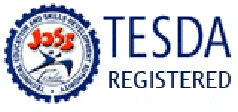
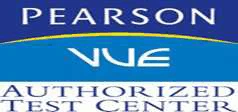
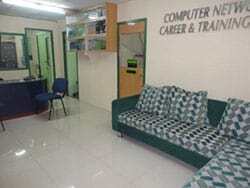
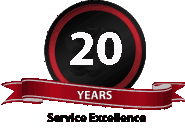



Ask Lang po ako saan po Yung personal location Yung tesda sa makati
Our Branch office in Makati is now relocated at Unit 604 CYA Land Bldg., 282 EDSA near corner Taft Avenue Pasay City.,
Hi po, with tesda certification po ba to?
Hello John you need to pass the tesda exam to get tesda certification. this course is part of tesda css nc2 certification exam
Hi po ask ko Lang po Kung anung date ang enrollment ? Para mapag ipunan ko po..
Open for enrollment po
Days & Time Start Date End Date Status Enrolled Reserved
M to F 9-3pm 09-02-2019 09-06-2019 open — —
M to F 9-3pm 09-09-2019 09-13-2019 open — —
M to F 9-3pm 11-11-2019 11-15-2019 open — 2
M to F 9-3pm 11-18-2019 11-22-2019 open — —
M to F 9-3pm 08-26-2019 08-30-2019 open — 1
M to F 9-3pm 09-16-2019 09-20-2019 open — —
M to F 9-3pm 09-23-2019 09-27-2019 open — —
M to F 9-3pm 11-04-2019 11-08-2019 open — —
M to F 9-3pm 10-07-2019 10-11-2019 open — —
M to F 9-3pm 10-14-2019 10-18-2019 open — —
M to F 9-3pm 10-21-2019 10-25-2019 open — —
M to F 9-3pm 10-28-2019 11-01-2019 open — —
Sat 9-3pm 09-07-2019 10-05-2019 open — —
Sat 9-3pm 10-05-2019 11-02-2019 open — —
Sun 9-3pm 08-25-2019 09-22-2019 open — —
Sun 9-3pm 09-01-2019 09-29-2019 open — —
Sun 9-3pm 10-06-2019 11-03-2019 open — —
Where is your exact location in EDSA Branch? Thank you
Our address is Unit 604 CYA Land Bldg. 282 Edsa corner Celle St. Pasay City
Land Mark: Near or in front STI school, going MOA before Herritage Hotel
Thanks po. I’m really interested n mag undergo ng OJT. Normally, saan po un location or office nito?
We will give you a recommendation letter on the last day of training. OJT location will be in Quezon City or Makati City.